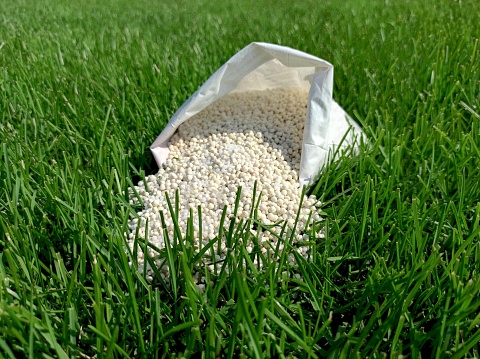Lawn fertilization entails using items or mixes to enhance one or more of the plant’s essential nutrients. Fertilizers are necessary for your grass’s health and vitality.
Fertilizing your lawn can ensure that it is healthy, lush, and green. Nitrogen is the most important component of a lawn’s fertilizer, and each variety of grass needs different amounts of nutrients for optimal growth and performance. You may have a healthy and beautiful lawn by fertilizing and maintaining it regularly.
Choosing the Right Fertilizer for Your Lawn
The lawn owner has an option when it comes to lawn fertilizer. The landowner might choose from a variety of fertilizers available at local gardening stores. Organic and synthetic fertilizers are the two types of fertilizers that are available.
Fertilizers with a Slow Release
It is highly advised that you fertilize your grass with a slow-release nitrogen fertilizer. This type of fertilizer encourages your lawn to grow consistently and uniformly. It’ll ensure that your tufts get enough nitrogen and other nutrients they need to flourish. In addition, slow-release fertilizers have the advantage of not needing to be fertilized regularly.
Fertilizers with a Quick Release
Fast-release fertilizers, as the name implies, are quickly absorbed by the grass. It enriches the soil with nutrients and aids in the rapid greening of the grass. They’re inexpensive, but they come with a great risk of scorching your lawn. Also, because fast-release fertilizers don’t last very long, they must be applied often.
Fertilizer for Lawns (Lawn-Starter)
This sort of fertilizer is used to aid the growth of new grass seeds. It’s abundant in phosphorus, which helps to develop and reinforce the roots of new grass.
Fertilizer for Weeds and Feed
This sort of fertilizer serves as both a fertilizer and a weed killer. There are several forms of this fertilizer, so choose the one that is ideal for your grass. Ensure not to use this fertilizer on new grass as it often contains herbicides that impede seed germination
Fertilizer for the winter
This fertilizer boosts the nutrients in your lawn in preparation for the winter. It’s normally done in the late autumn. If you have a cool-season lawn, you should use a nitrogen-rich winterize fertilizer. Warm-season greens can benefit from a winterize that is low in nitrogen but high on phosphorus and potassium.
Lawn Soil Types and Recommendations
The soil is the foundation of any attractive and healthy lawn; it is where your grass gets the nutrients it needs to develop. Unhealthy soil causes a lot of lawn problems. Healthy soil should have the correct mix of sandy, silt, clay, and loam soils.
When the lawn is watered, the loam soil retains moisture while also draining efficiently. It is the ideal soil for your yard because of its capacity to store nutrients while allowing airflow.
Advantages of Lawn Fertilization’s
Fertilizing your lawn is an investment of both time and money, and you might be wondering if it’s worth it. So how much of a benefit will lawn fertilizer provide you? Here are five ways that fertilizing your lawn can help you now and in the future.
- Disease Resistance is improved
Have you ever experienced a sudden loss of a large area of your lawn? This is frequently due to disease, which destroys the grass at its roots. When grass is given the nutrients, it needs to thrive. Therefore, it is considerably less susceptible to disease. Remember that grass, like you, is alive and requires the proper nutrients to stay healthy.
The majority of today’s fertilizers also include weed-prevention chemicals. Even people who don’t help with weed management can help the good grass grow thick and strong by providing its necessary tools. Weeds are less prone to attack grass that is thick, tough, and has a deep root system.
- Has Improved Overall Growth
Every homeowner has experienced the annoyance of grass growing thick and lush in one area of the yard yet sparse and thin in another. This is frequently due to a shortage of nutrients in the yard’s less lush areas. Natural causes affect the soil differently in different regions of the yard, resulting in unequal nutrients. Grass fertilization will promote consistent growth, resulting in a lush and thick lawn.
- Environment’s Protection
Grass needs minerals from the soil to thrive and flourish. Soil runoff is reduced by thick grass, which is the effect of fertilizer. When natural rain and storms come, properly treated soil is less likely to become depleted. This is an investment in the future of your yard because healthy soil promotes healthy grass for future years.
- Chemical Resistance
Finally, healthy grass that has been properly fertilized is more pest resistant. Whether or whether you use insecticides in your fertilizer, the thicker your lawn grows, the more difficult it is for pests to establish a foothold.
Conclusion
It’s time to fertilize your lawn if you see it lacks nutrients, turning yellow, or wilting. The rich greenery of the yard adds to its appeal. Plants, like humans, require nutrients to survive. You’ll need to figure out what kind of fertilizer your grass requires and how to apply it properly.
